There are many reasons why you might need to store your window AC--you could be moving into a new home, you might want to protect it during the winter, or you might want to keep it while waiting for a professional to install it. The question is, is it safe to store it on its side? We have researched answers to find out.
It is not advised to store a window AC on its side. It should always be stored upright since its anatomy was designed that way. Any disruption could cause leaking, or worse, damage to the compressor.
Window air conditioners contain parts with very specific functions--ones that won't work properly if they are jostled or repositioned in any way. If you own an AC unit, it is important to familiarize yourself with the unit's anatomy. Keep reading below to learn more about how to care for your window AC unit.
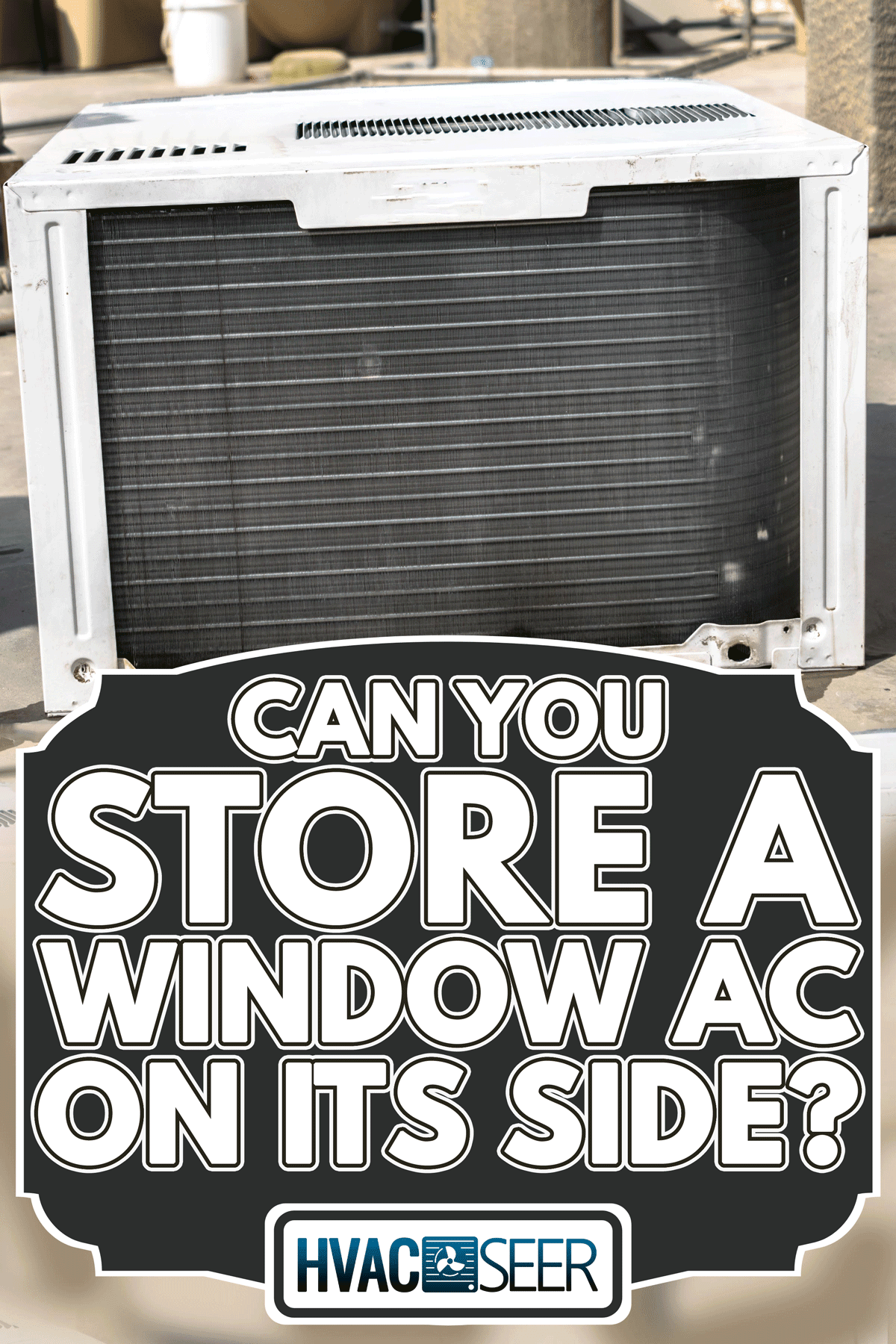
What Happens if You Store the Window AC on Its Side?
Air conditioners have oils and liquid lines that need to be kept upright. Positioning them sideways will jeopardize its internal system and permanently damage your unit.
If you store your unit at an inclined or awkward angle, its internal anatomy can be subjected to mechanical fatigue. The damage can potentially be irreparable, so it is best to avoid doing this.
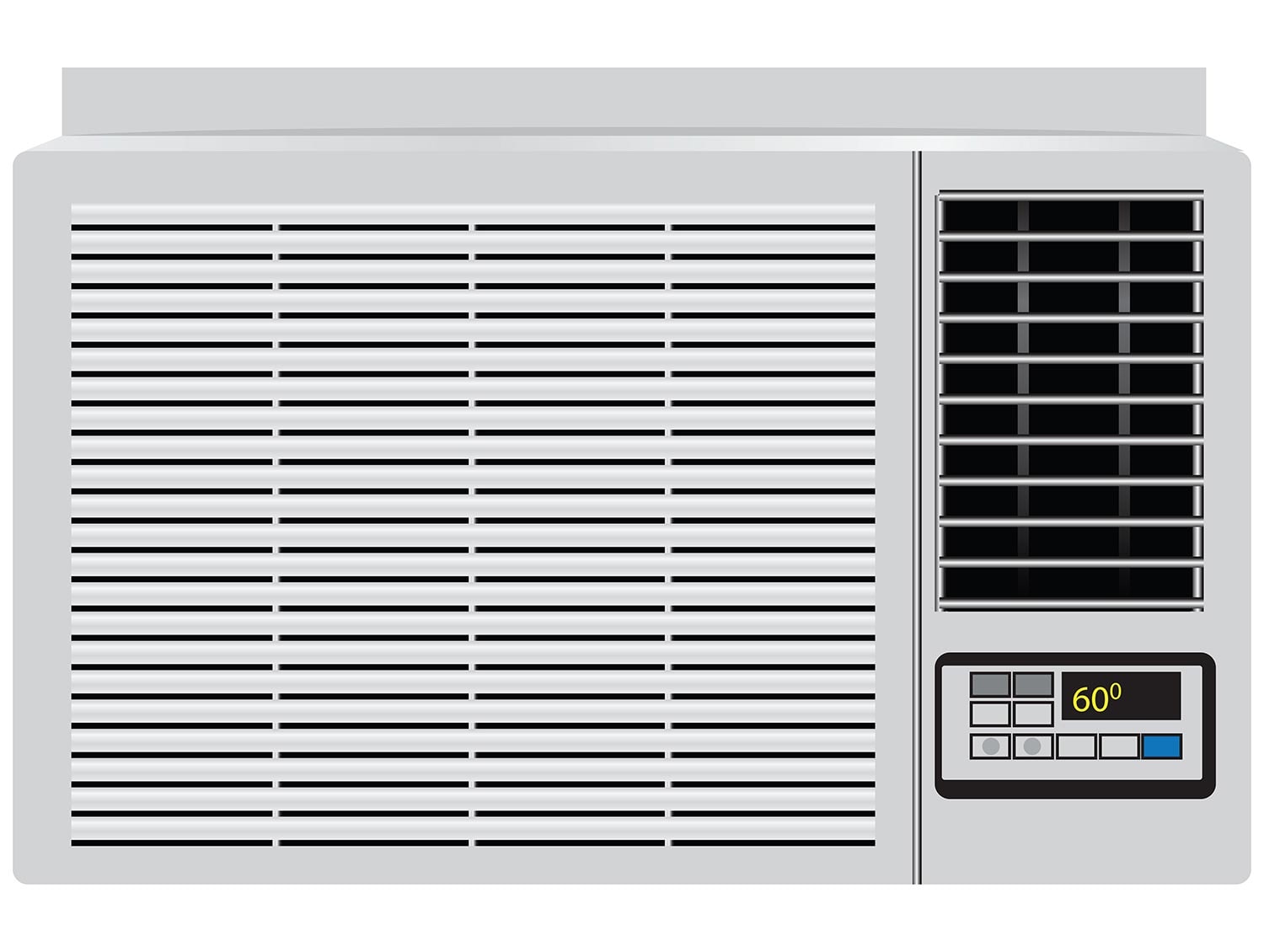
Storing a window air conditioner is already physically taxing. You wouldn't want to go through all the effort just to find out that the AC unit can no longer work because of its position while stored.
Compressor Damage
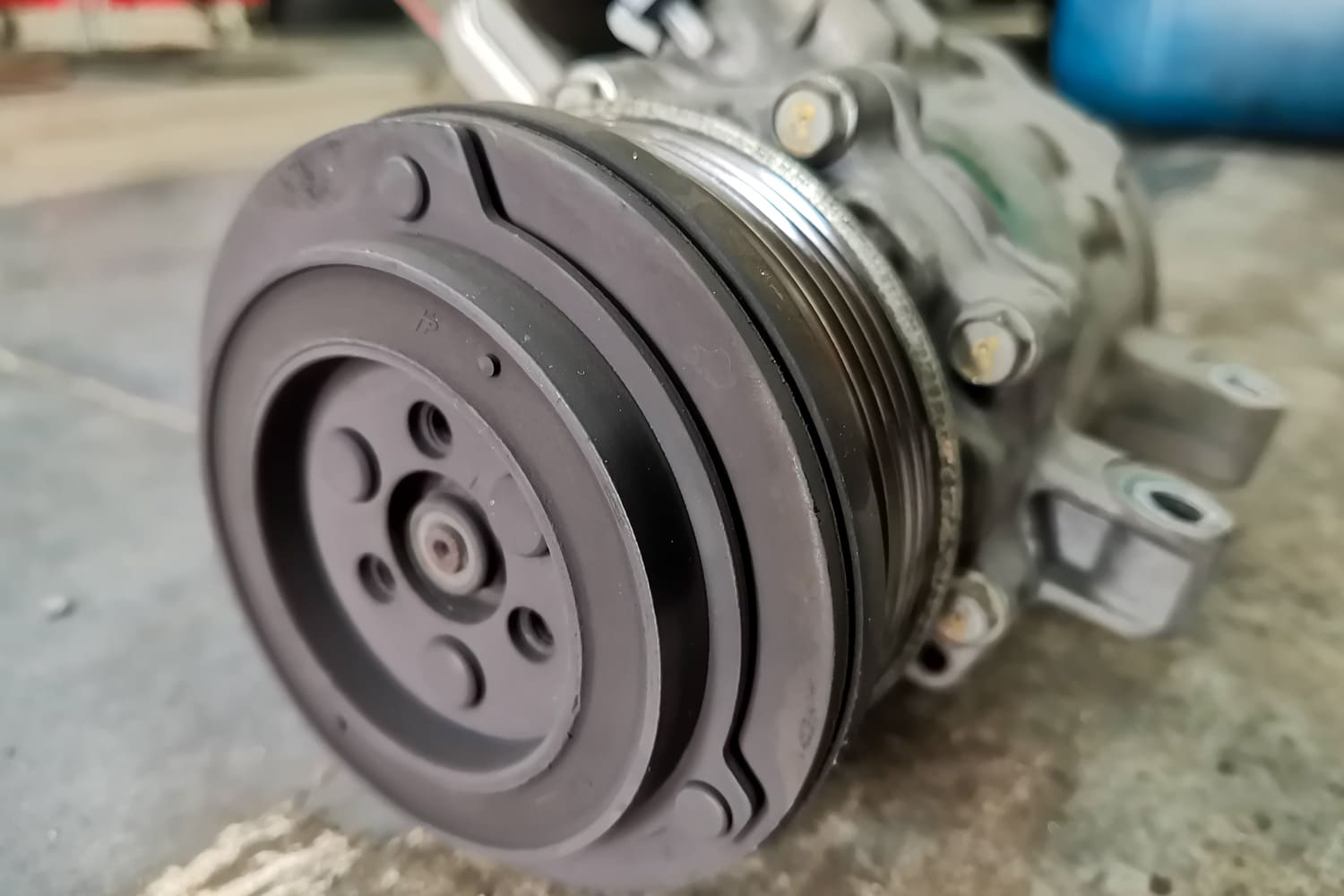
The compressor is the one keeping the unit functional. If this is damaged, the whole unit is rendered useless.
The compressor is responsible for moving the liquid lines from the evaporator to the condenser coils, which are then expelled into your space. The compressor has a motor that requires oil lubrication which is placed in the compressor case.
If you place the unit on its side, the oils inside the compressor case will leak out, eventually resulting in compressor burnout.
You cannot repair the compressor yourself unless you are an experienced HVAC professional. In most cases, they will most likely recommend replacing the compressor or the unit altogether.
Water Damage through Faulty Draining
The condensate line is responsible for providing an exit route for the moisture. This moisture is collected by the air conditioner as it dehumidifies the room to provide a more comfortable environment.
The coils remove the humidity from the indoors, which is then condensed into a pan. If placed on its side, there is no knowing where all these condensate lines will drip: either into your floor or into the compressor--which could be fatal to the machine.
Water Damage on Vents
Your air conditioning unit has fins or ventilation grates that provide airflow on the warm sides of the unit, preventing it from overheating.
The ventilation grates also redirect airflow to the central cooling or heating unit from the ventilation system. Water will potentially run through these vents if the window AC is in a sideways orientation and cause water damage.
What to do if you stored your AC sideways?
If you absolutely have to place the unit sideways, make sure it is only for a short while--ideally for transportation purposes only.
Once it is unloaded, do not power on your AC unit immediately as the oils and condensate need time to settle or they'll damage the unit.
You will most likely need to wait for 24 hours before you can use the air conditioner again. This may pose some inconvenience, but it is better than having to get a new unit altogether.
Should you remove your air conditioners during the winter?
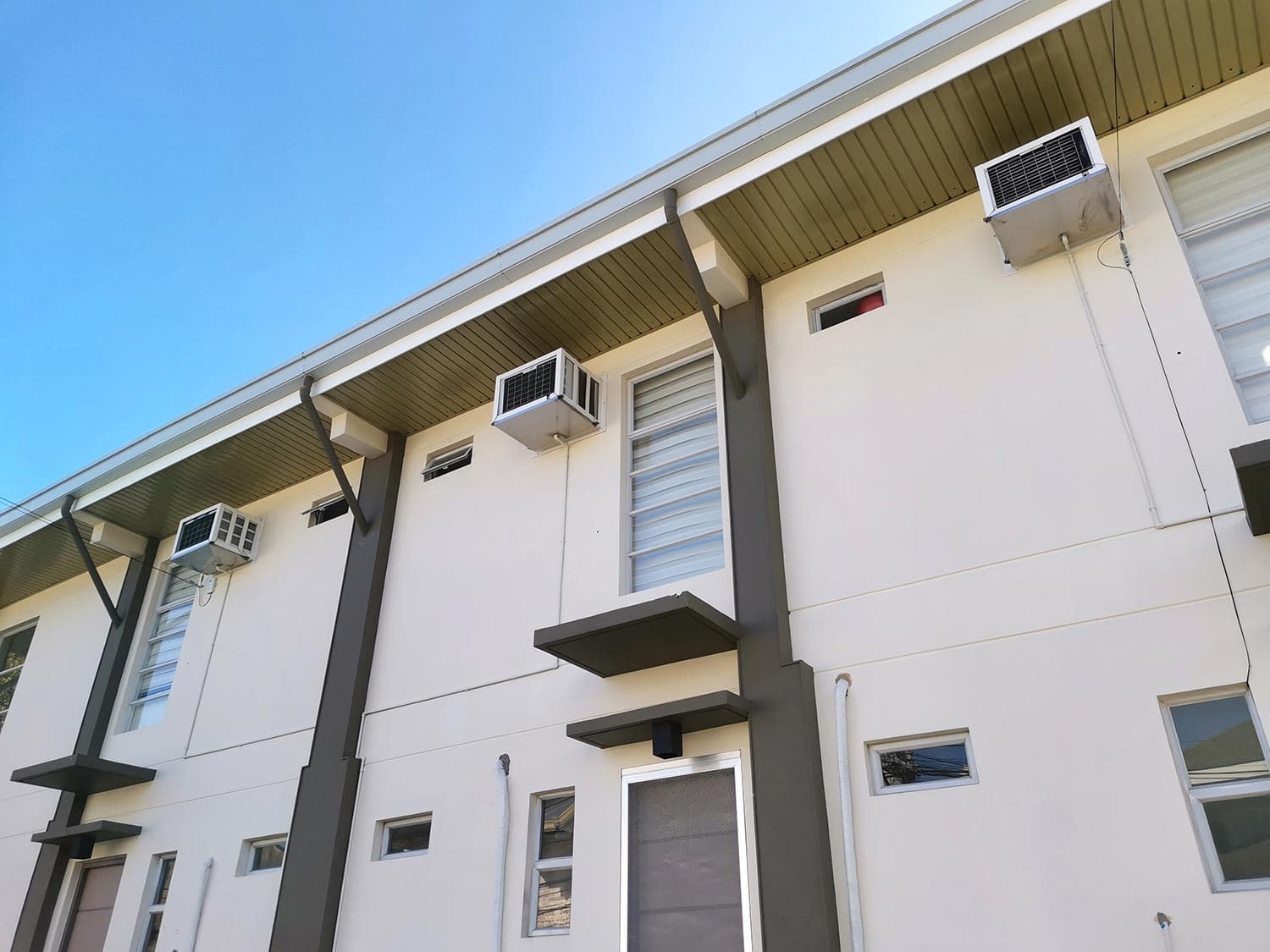
At the beginning of the fall and winter, you should unmount your window air conditioner as this can cause cold drafts to enter your home through the smallest cracks on the side, even if you caulk it.
Leaving your air conditioner outside during harsh weather could also damage your AC unit's components, rendering it useless during the summer season.
Covering the unit from the outside can be an option, but there is still a risk of it getting torn during a blizzard by debris or strong winds. The best thing you can do to protect your unit is to store it safely inside.
How To Store Air Conditioner Properly
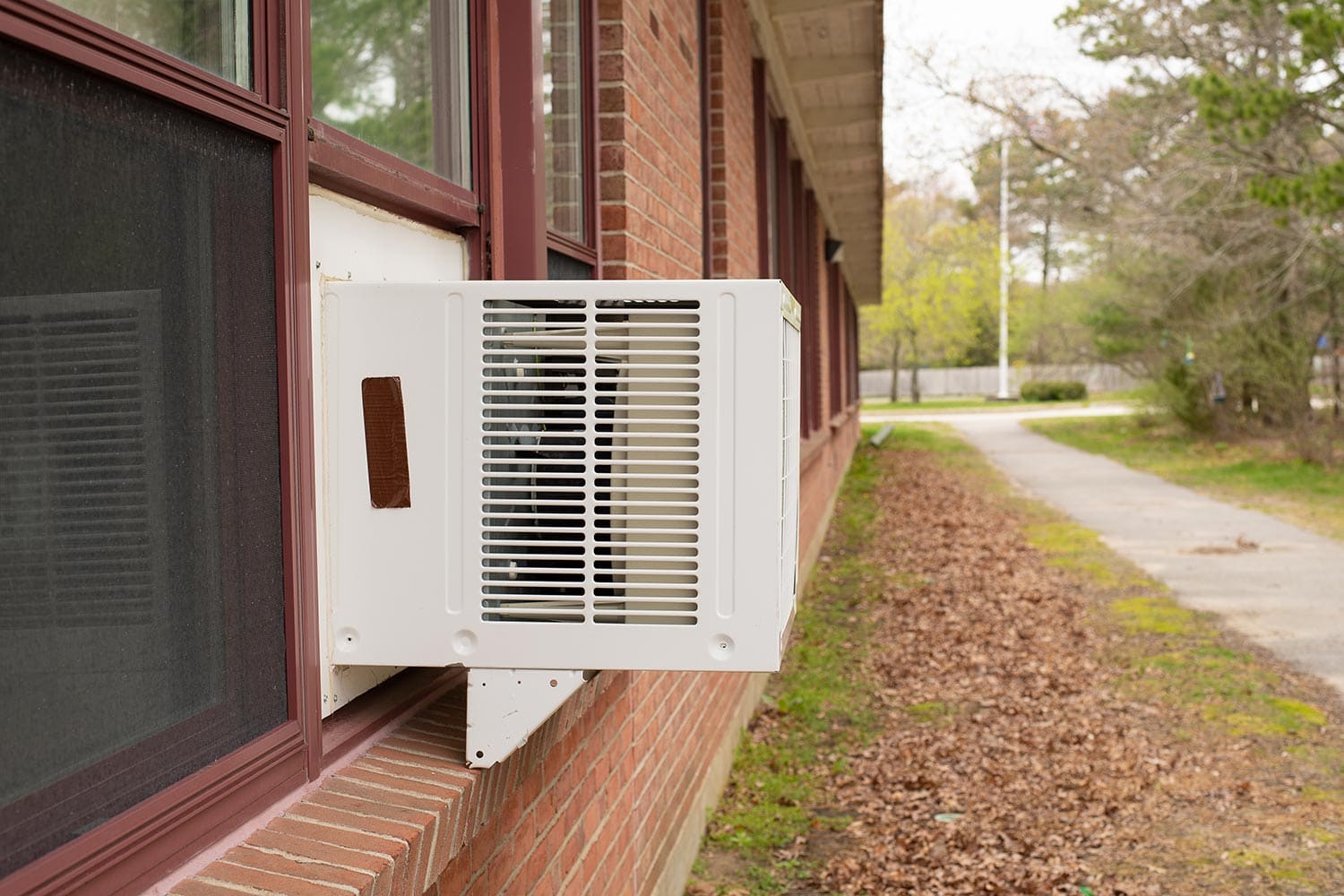
There are many things to do to ensure the protection of your unit when you store it away for the autumn or winter months. You want it to still perform at peak condition when you need it, so it is best to apply best practices from when you start to remove it.
Here is how you can store your air conditioner properly.
Read: "Can You Install A Window Air Conditioner Through A Wall [And How To]?"
Check the unit for damage
Inspecting for damage is important so you won't be caught off-guard when you notice there are liquid puddles on the floor from where you stored your unit. This will allow you to address problems early on, so you won't have to deal with them when you already need to mount the unit back up.
Checking for damage will also prevent the stress of cleaning the floors when you notice a leak or going to the repair shop in the middle of summer.
It is best to seek help from a professional when you notice any dents or fan misalignments to ensure proper handling.
Seek help when removing the unit
As much as possible, do not remove the entire heavy unit alone. Lifting the unit alone will not only expose the unit to the risk of breaking; you could also encounter an accident yourself.
You can ask for help from a friend or hire a moving service if you're going to be moving houses.
- Remove the power source from the air conditioner.
- Remove the front panel for a more convenient grip.
- Unscrew the removable panels on each side of the unit.
- Open the window pane to prepare for unmounting.
- Carefully tilt the unit and remove it from its slot.
Wash your window AC unit
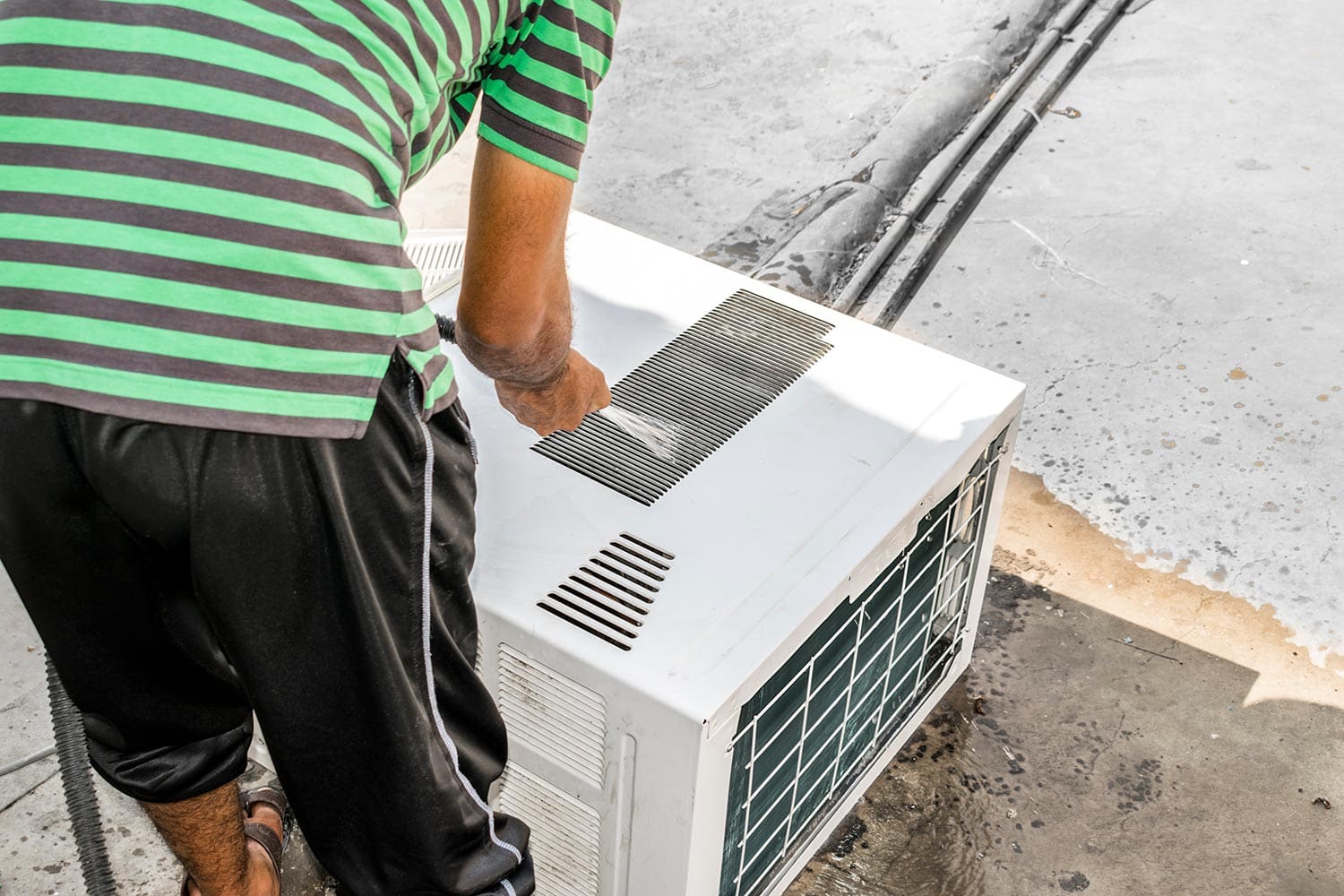
You will need to remove the dirt and gunk from your AC unit before storing it. This will ensure that no dirt will make its way inside your house and that it will not clog the filters and vents of the unit.
Make sure you also replace the filters or clean them if they are reusable.
- Place the unit on level ground and run your hose water over the surface.
- Brush the exterior with soap and vinegar solution.
- Rinse again with water and leave it to dry before storing.
If you don't have enough time to clean it yourself, you can hire HVAC cleaning services to do the job for you.
Read: "How To Clean A Mitsubishi Mini Split [ A Step-By-Step Guide]."
Place the unit in a clean, dry place
Once your AC unit is clean, reassemble it and wrap it up with plastic to prepare for winter. Doing this will protect the unit from pest damage, and maintain its clean state.
After wrapping, make sure you place it in a clean place free of moisture or excessive humidity.
Exposure to too much moisture can encourage the growth of mold and mildew, which can be dangerous if not spotted early and kept when you power up your AC later on.
Store the unit upright
Place the unit in an upright position to maintain its functional and structural integrity. Put it on an even surface since tilting it for an indefinite amount of time can also cause damage.
You can also place the unit inside a box for optimum protection and to protect your surfaces from the machine's metal.
Can you store your AC unit in the Garage?
Many HVAC professionals advise against storing your AC unit anywhere outside your home--including the garage. This may expose the unit to cold drafts, freezing the liquid lines and potentially damaging the compressor.
It is best to store your unit in an attic, basement, or utility closet.
Final Thoughts
Window AC units are expensive, so it is best to invest some energy into taking care of them now instead of spending some more on repair costs if they break. It is not even guaranteed that they'll work properly again once they're damaged, so you need to familiarize yourself with proper caring tips.
As with all appliances, proper maintenance is key to making them last longer.
